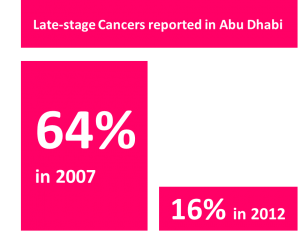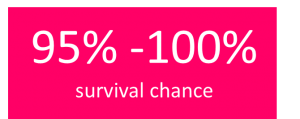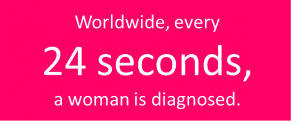Pink. Fundraising events, walkathons, banners and outfits; all through October, Dubai is dripping pink.
Brands display their alliance with spectacular activations and people show their support by participating and donning pink outfits. Having October as the official Breast Cancer Awareness Month is a brilliant way to bring the taboo topic into the public sphere under a pink spotlight. However, we, at B-Change, wanted to begin this conversation back up now, after the pink ribbons have faded into moustaches and red roses.
We need to talk about Breast Cancer all year round. Due to cultural predispositions in the MENA region, breast cancer comes with two great taboos in one: Breasts and Cancer.
Illness is a sign of weakness, while talking about intimate body parts is a huge no-no.
But, we need to talk about it – not in a depressing, fear-inducing way, but as a gentle reminder that rosy ribbons and catchy slogans aren’t what it’s about.
WHY?
Why are we asking to keep the conversation going? Here are a few reasons:
1. Awareness works wonders: The National reported that in 2012, “only 16 per cent of cases in Abu Dhabi were diagnosed at a late stage compared with 64 per cent in 2007.” So, just a conversation and self-examination can save your mother, aunt, daughter or friend.
2. Early detection means survival: Get this – If caught at stage one, the chance of survival is between 95 and 100 per cent. Look at those odds! And the examinations are easy too.
3. It’s not uncommon: According to research, “Worldwide, one woman every 24 seconds is found to have breast cancer and one woman dies from the condition every 68 seconds”. I usually dislike fear-based appeals, but a study from 1985 tells us, that in the U.A.E, a majority of breast cancer patients waited over six months before visiting a doctor.
The study by Bener et al suggests that
“this indicates a lack of personal perceptions of susceptibility to breast cancer, since a correct perception usually has a positive impact on the women’s screening behaviors.”
It’s not a foreign concept – It can happen to anyone [but the bright side is that you know how to keep yourself safe].
4. It makes the life of fighters easier: Imagine having a problem that’s physically painful and always on your mind, but you can’t talk to anyone about it. Since people tend to avoid the breast cancer conversation, even when women detect lumps or are diagnosed, they feel hesitant to talk about it.
If we talk about it openly and without the prevalent reluctance, we can hopefully bring ease and relief to these brave fighters. Goodness knows they could use it [and all the love they can get].
WHAT?
Talk about breast cancer in general and it may not make an impact. Teach a woman to conduct a self-exam and she’ll be safe for life.
Self-examinations should be conducted every month for all women. In addition, women from the age of 20 should visit their General Physician every 3 years and women over the age of 40 should have a mammogram every 2 years.
Here’s how to conduct a self-exam:
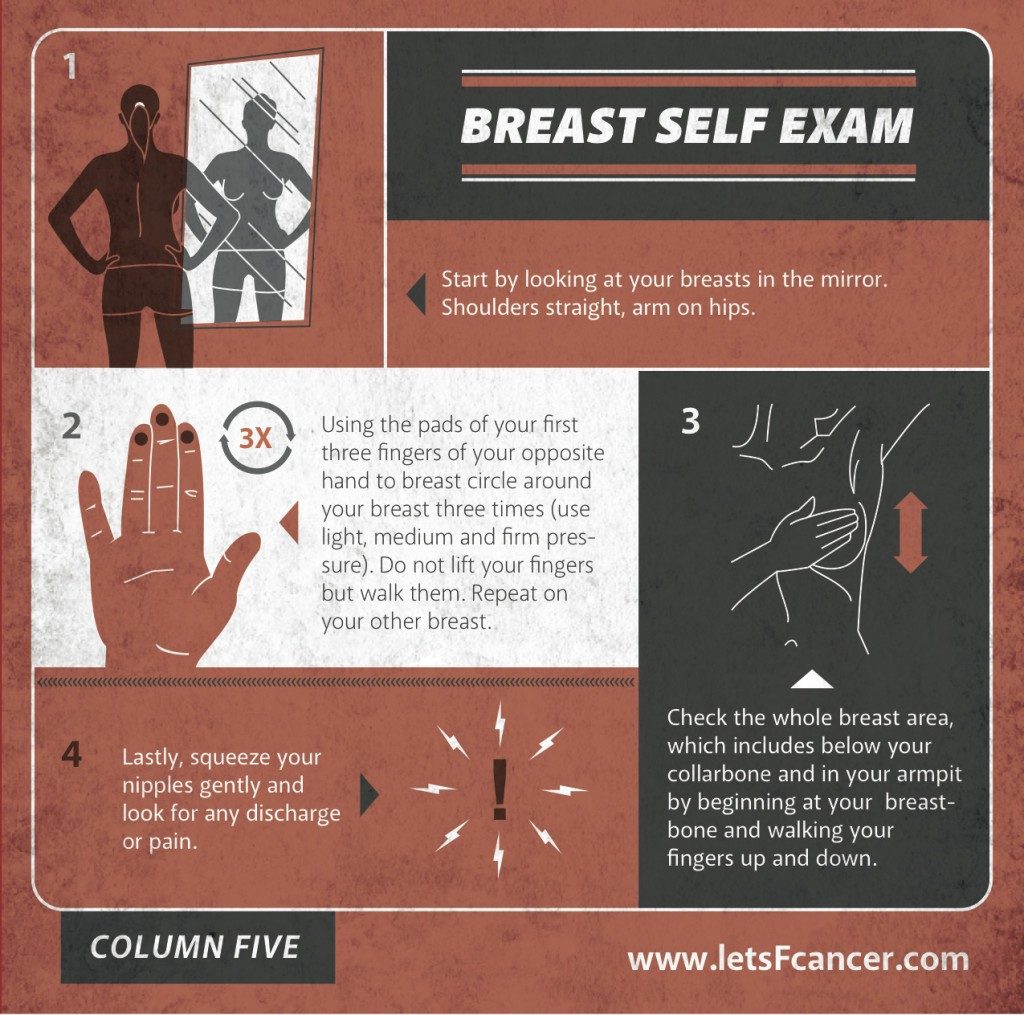
Here are the abnormalities you’ll be looking for:
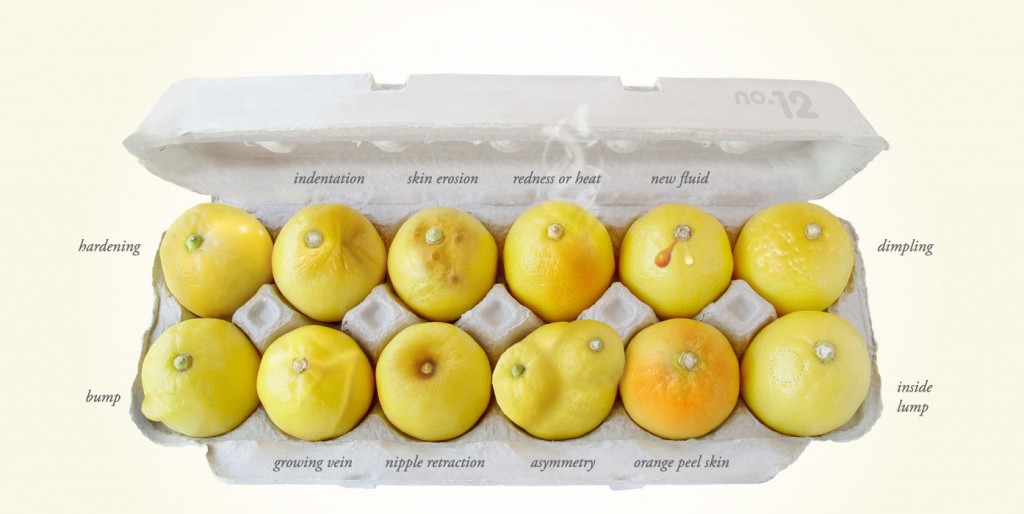
WHO?
So, don’t be shy and talk to the women in your life – daughters, aunts, sisters, mothers, grandmothers, friends- and help keep them safe. Have a conversation, share interesting facts and teach them how to conduct a self-examination.
For every conversation you have, we’d like you to tell us! Help spread the word with the #WeNeedToTalk and tag @BChangeSocial.
We need to talk about breast cancer.



